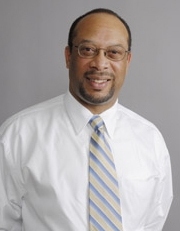March 2008
 Dear Colleagues,
Dear Colleagues,
I am pleased to update you on some of the current activities of the systemwide Academic Senate. The Senate’s Academic Advisory Committee continues to be engaged in the presidential search process in a way that is consistent with its historical role. UC faculty care deeply about who the next UC president will be and are optimistic that he or she will be a stabilizing force for a university facing turbulent times. The Advisory Committee also feels strongly that the new president must be a distinguished academic who has demonstrated the ability to effectively manage a large, complex, public, research university. Vice Chair Croughan and I have been working hard to maximize the input of the faculty and to communicate the appropriate role of the Senate in the search. Although we have experienced some process-related bumps and frustrations along the way, we are moving forward with a common purpose and sense of urgency.
A few other issues complicate the search. The Office of the President restructuring creates uncertainty about UCOP’s ability to help the next president support the campuses as well as potential initiatives. Though I support UCOP’s efforts to re-envision its role in governance, I worry about damaging UCOP’s ability to support the University’s academic mission. We should all carefully monitor the ability of UCOP to support the campuses during and after this transition.
Additionally, last fall a special team from the regional accreditation group Western Association of Schools and Colleges (WASC) visited UCOP. WASC’s report, which Academic Council endorsed, criticizes some of the University’s management and governance practices and makes recommendations for improvements. I am optimistic that the final WASC report, as well as the earlier Monitor Group report, will help UC re-envision its governance structure, establish new accountability mechanisms, and appropriately realign the relative roles and responsibilities of UCOP, the Regents, and the campuses.
Budget woes are also a complicating issue. To help address a presently estimated $16 billion state budget deficit the Governor has proposed a 10% after “Compact”-funding cut to UC in his 2008-09 budget. Many faculty are concerned about the implications of the budget situation for the implementation of the next phase of the faculty salary scales plan and other faculty priorities like graduate student support. The Senate is taking an active leadership role in advocating for these priorities.
I want to encourage faculty to take time out to view the new UC for California budget advocacy website, send their legislators a message or two in support of UC, and forward the link to UC colleagues and friends.
I have been thinking a lot about “disparate impact” in admissions, which the Regents’ Diversity Study Group Report noted as a potential concern. There are indications that UC eligibility and admission rates between groups with the highest rates and lowest rates differ starkly. Although this is partially a K-12 problem, because primary and secondary school students are not being provided equal education opportunities, it is also a UC problem. UC’s admissions policies may perpetuate and exacerbate inequity to the extent that they assume equal opportunity where none exists. The University – particularly the Senate – has an obligation to address policies and processes that may be needlessly unfair. It may be possible to solve disparate impact, and thereby be compliant with applicable federal law, without using criteria prohibited by Proposition 209. On that note, the Academic Council recently sent out BOARS’ revised proposal to modify freshman eligibility policy for a second round of systemwide Senate review. BOARS is saying that it would be more fair and better for UC to look at all the information received about a student before we determine eligibility. The first round of reviews led to excellent feedback and I invite you to study how BOARS has responded.
Finally, I am delighted that the Assembly has elected UC San Diego Professor Henry Powell incoming 2008-2009 Academic Council Vice Chair. Professor Powell brings a wealth of leadership experience, a commitment to shared governance, and an understanding of the unique and extraordinary value of Academic Senate perspectives to the formation of institutional policy. He is a stellar choice and will be a great asset to the Senate and to Vice Chair Mary Croughan when she assumes the chairship of the Senate.
As winter turns to spring here in Oakland, I also have hopes that we are on the verge of a new springtime for the University. I wish you all the best for the spring term. Please do not hesitate to contact me if you have any questions or concerns.
Fiat Lux,
Michael Brown
